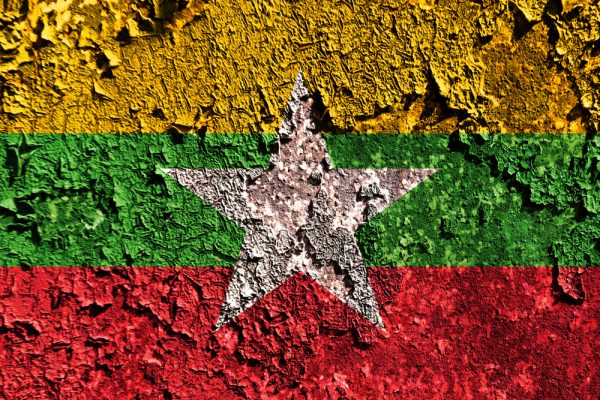
Since not long after its seizure of power in February of last year, the Myanmar military’s plans for securing its hold on power have been fairly straightforward, in theory, if not yet in practice. According to the State Administration Council (SAC)’s Five-Point Road Map, which is reprinted on the front page of each day’s edition of the state-run Global New Light of Myanmar, the military authorities will prioritize the fight against COVID-19 (Points 2 and 3) and then on “achieving enduring peace for the entire nation” (Point 4) – code for crushing the widespread resistance to its rule.
Having presumably accomplished the reconstitution of the Union Election Commission and the scrutiny of voter lists (Point 1), the junta will move to its fifth and final step in its roadmap: the holding of “free and fair multiparty elections,” currently scheduled to be held in August 2023, after which “further work will be undertaken to hand over State duties to the winning party in accordance with democratic standards.” This staged transition to a civilian-seeming government, it is hoped, will launder the military’s seizure of power into something palatable, both domestically and to the outside world.
But in a recent interview with Russian news agency RIA, junta leader Senior Gen. Min Aung Hlaing hinted that the timing of the election is not certain, given the tumultuous political and economic situation in the country. As The Irrawaddy reported, when asked about the possibility of the election being delayed during the interview, Min Aung Hlaing replied, “It is too early to discuss it because it is around five months [until emergency rule expires], and a decision has to be made depending on the situation.”
The election has already been pushed back once, due to the intense opposition that the junta has faced since its seizure of power. Shortly after the coup, Min Aung Hlaing declared that he would hold elections within a year. He later extended this deadline by eighteen months, to August 2023, instructing the authorities to “create conditions to hold a free and fair multiparty general election.”
At present, these conditions are very far from pertaining in most parts of Myanmar. Earlier this month, the Special Advisory Council for Myanmar, a group of independent international experts, put out a report claiming that the military administration completely controls just 22 percent of the country’s 330 townships, or around 17 percent of Myanmar’s land area. It concluded, “The junta does not have effective control of Myanmar. It neither has full control of the country’s territory nor of its people.”
The opposition National Unity Government (NUG) has similarly claimed that its People’s Defense Forces and allied ethnic armed groups have now established effective control of more than half of the country. While it is hard to know whether to take these assessments at face value, they suggest that the administration of an electoral process in most of Myanmar’s townships would at the very least face the likelihood of disruption by resistance forces.
All this raises the question of whether the junta’s goals are realistically obtainable: if elections have to await the achievement of “enduring peace for the entire nation,” then it is unlikely that elections will be held at all – such is the extent of the resistance to, and popular revulsion of, the junta’s rule.
As Amara Thiha, a visiting fellow of the London-based International Institute for Strategic Studies, wrote for The Diplomat last month, this leaves the SAC with two options: extend the state of emergency for another six months and hope that it manages to reconquer and stabilize enough of the country that it can administer an electoral process; or simply hold elections in those parts of the country that it does control, declare “victory,” and hope that enough of the outside world is ready to view the resulting civilian-ish administration as the country’s legitimate government.
Perhaps it is now dawning on the military administration that its upcoming sham elections, if they are able to be held at all, will be unlikely to extricate the junta from its self-made crisis.
Myanmar Junta Chief Airs Postponement of Sham Election
Source: Frappler

0 Comments